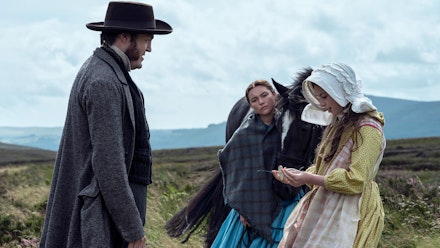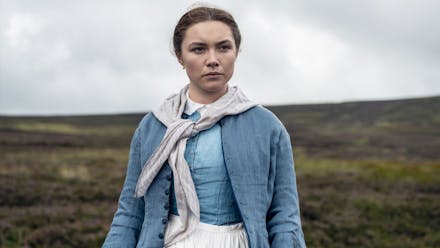Chilean filmmaker Sebastián Lelio prides himself on telling the formidable stories of unassuming women. From Julianne Moore’s effervescent Julia to Daniela Vega’s breakout moment in A Fantastic Woman, here is a man determined to shine a light on mysterious female stories – an ambition that peaks with eerie period horror The Wonder.
It’s a slow burn, and an exercise in faith in more ways than one. But Florence Pugh impresses once more — this feels like the tipping point to call her this generation’s most impressive British actor — as a Yorkshire nurse tasked with observing a young girl refusing to eat in a pious 19th-century Irish village. Pugh walks a delicate tightrope between commitment and frustration, expressed through her unique brand of simmering contempt, and is in good company alongside Tom Burke as a fascinated journalist also trying to figure out the truth.

The story, adapted from Emma Donoghue’s novel of the same name, smartly wrestles with the despair and uncertainty felt by many after the Great Famine in Ireland. It’s bleak, rarely outright entertaining stuff, but Lelio pushes through to find a glimmer of hope in it all – as he regularly does with the women he champions.
It never quite goes as far as it could with the otherworldliness.
There is certainly a greater exercise in genre than Leilo's previous work, flirting with horror and the supernatural as Lib almost loses her grip on what’s real, and the film ponders just how long faith can keep you alive. But it never quite goes as far as it could with the otherworldliness; Lelio is a humanist filmmaker, and his greatest strength has always been the human emotion he paints with.
It’s thoughtful but slow, asking the audience — literally, with Niamh Algar narrating the film’s fourth wall-breaking bookends — to “believe in stories with complete devotion,” like these characters do. The Wonder searches for compassion in a cold, hungry world – the answers might just take a minute to digest.

